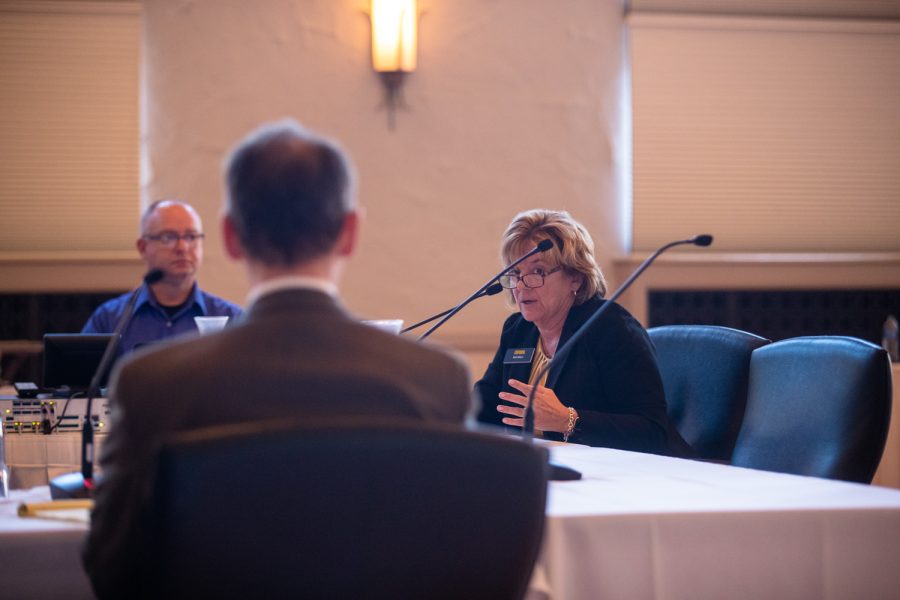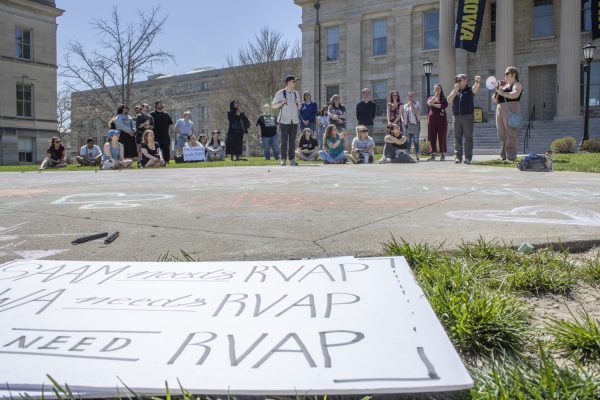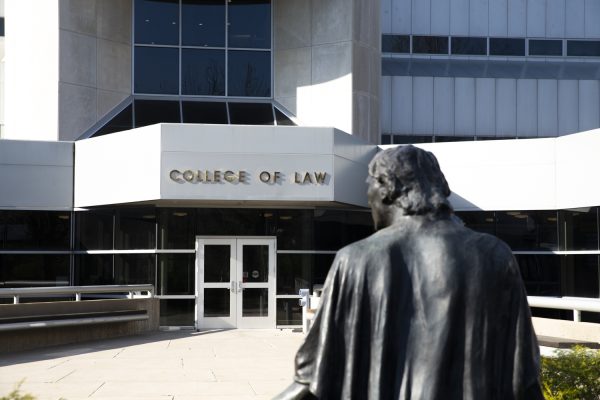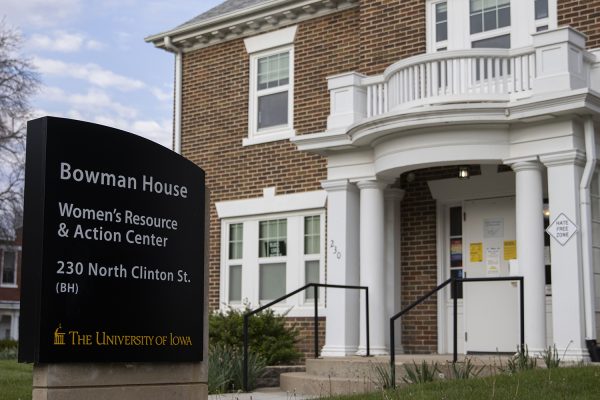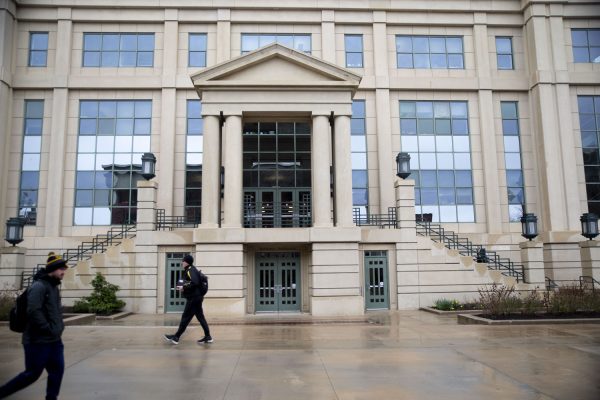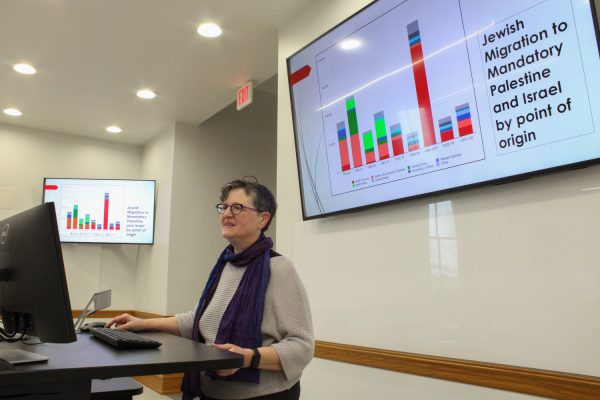UI plans to hire three care coordinators to improve mental health and well-being for students
President Barbara Wilson updated the state Board of Regents on new initiatives the university has to support student care.
University of Iowa president Barbara Wilson answers Regent David Barker’s questions about First Gen Hawks at a Board of Regents meeting at the University of Northern Iowa in Cedar Falls, Iowa on Thursday, Nov. 4, 2021. (
November 4, 2021
The University of Iowa is in the process of hiring three mental health coordinators to aid in its efforts to provide holistic support for students.
President Barbara Wilson said during her report to the state Board of Regents that the UI works with students in and out of the classroom, by providing leadership and service activities, all while paying attention to student wellness.
Wilson said the salary of one of the two care coordinators will be funded by the UI Department of Public Safety and will work closely with the department. The UI also plans to hire a basic needs coordinator.
Care coordinators will respond to mental health concerns from students, and basic needs coordinators will connect students to resources such as food pantries and clothing closets.
“It really is a great example of how we’re working together across different units on mental health and wellness,” Wilson said.
Wilson told the regents that students need support around the clock.
The UI’s new 24/7 Support and Crisis Line, which launched this semester, is available via text and call, and will connect students to hospitals if needed, Wilson told the regents.
“This service will provide professional help at the other end to understand student needs, and can respond very quickly to any kind of crisis or emerging crisis that might be occurring among our students,” Wilson said.
Wilson also discussed First Gen Hawks, a program designed to support the UI’s first-generation students, which has produced a 92 percent retention rate among first-generation students — which is 9 percent higher than the general retention rate among undergraduates.
“You can see that, with this program, we were able to boost the overall retention rate by 4 percent,” Wilson said.
Wilson uses this data to support the importance of getting of connecting students to resources early in their time at the UI.
“The students reported after this program that they felt more confidence in their abilities to do well in college,” Wilson said. “They also felt that they had a growth mindset and that they were better able to seek help when they needed it.”
The university hopes to expand the First Gen Hawks program, which is funded by the UI’s public/private partnership on its utility system, Wilson said. The first cohort had 61 students.
“So that’s the beauty of the P3 funding. It’s allowing us to pilot things in a small way,” Wilson said. “Not to overextend ourselves. And then once we see the positive results, as I just shared with you, we’re going to grow that program.”



